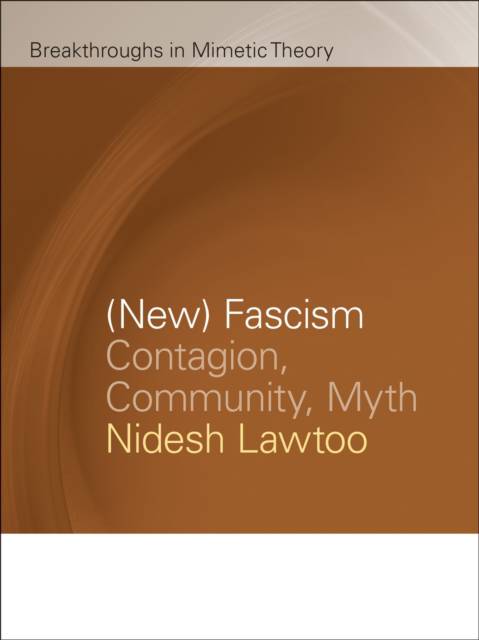
- Afhalen na 1 uur in een winkel met voorraad
- Gratis thuislevering in België vanaf € 30
- Ruim aanbod met 7 miljoen producten
- Afhalen na 1 uur in een winkel met voorraad
- Gratis thuislevering in België vanaf € 30
- Ruim aanbod met 7 miljoen producten
Zoeken
Omschrijving
Fascism tends to be relegated to a dark chapter of European history, but what if new forms of fascism are currently returning to the forefront of the political scene? In this book, Nidesh Lawtoo furthers his previous diagnostic of crowd behavior, identification, and mimetic contagion to account for the growing shadow cast by authoritarian leaders who rely on new media to take possession of the digital age. Donald Trump is considered here as a case study to illustrate Nietzsche's untimely claim that, one day, " 'actors, ' all kinds of actors, will be the real masters." In the process, Lawtoo joins forces with a genealogy of mimetic theorists--from Plato to Girard, through Nietzsche, Tarde, Le Bon, Freud, Bataille, Lacoue-Labarthe, and Nancy, among others--to show that (new) fascism may not be fully "new," let alone original; yet it effectively reloads the old problematics of mimesis via new media that have the disquieting power to turn politics itself into a fiction.
Specificaties
Betrokkenen
- Auteur(s):
- Uitgeverij:
Inhoud
- Aantal bladzijden:
- 360
- Taal:
- Engels
- Reeks:
Eigenschappen
- Productcode (EAN):
- 9781611863291
- Verschijningsdatum:
- 1/08/2019
- Uitvoering:
- Paperback
- Formaat:
- Trade paperback (VS)
- Afmetingen:
- 117 mm x 150 mm
- Gewicht:
- 294 g

Alleen bij Standaard Boekhandel
+ 48 punten op je klantenkaart van Standaard Boekhandel
Beoordelingen
We publiceren alleen reviews die voldoen aan de voorwaarden voor reviews. Bekijk onze voorwaarden voor reviews.











